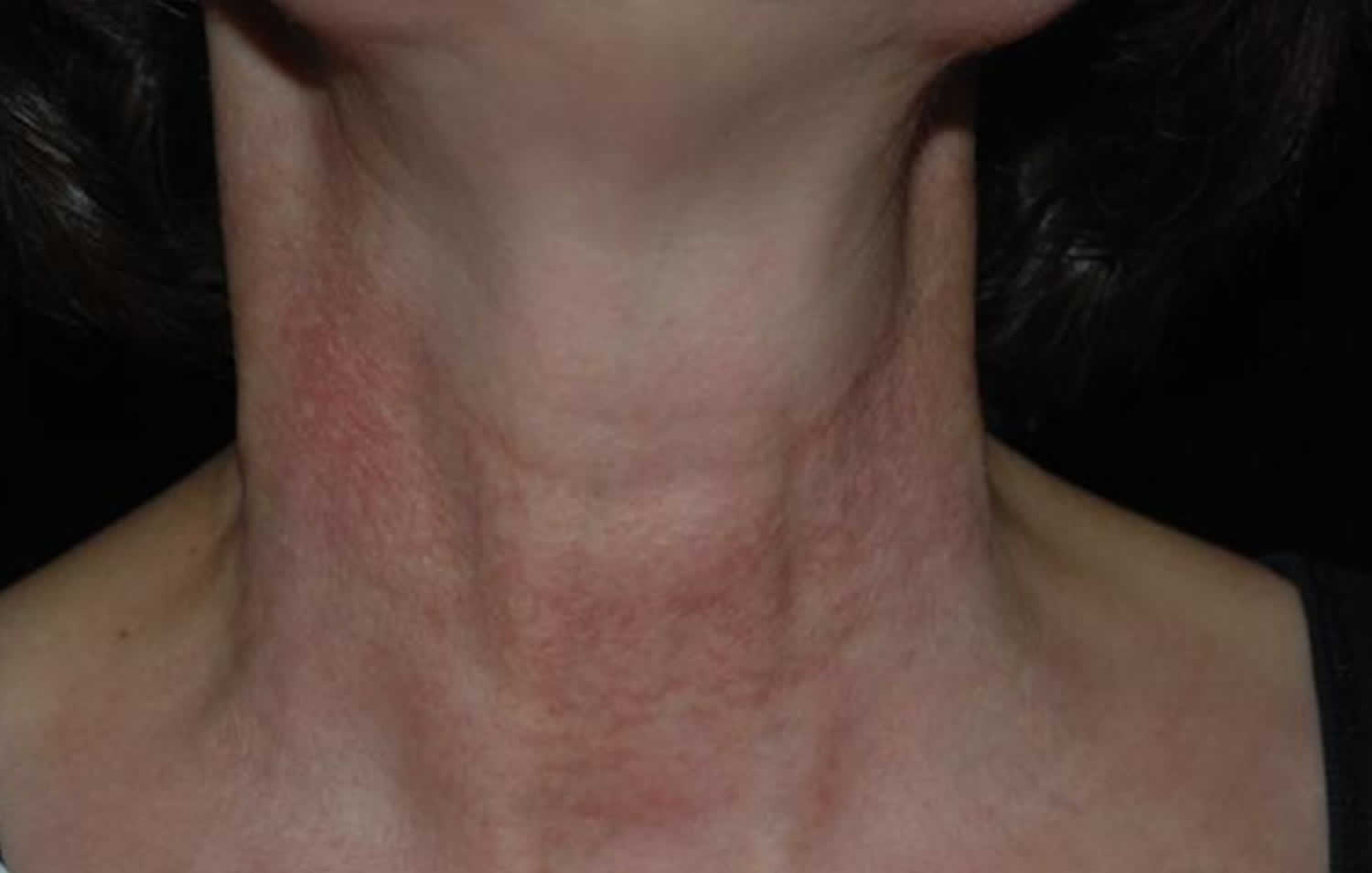How do you rid of poikiloderma ?
What is Poikiloderma ?
Poikiloderma of Civatte is a benign , common and chronic condition , which belongs to the groups of melanodermas . The term poikiloderma refers to a skin change with atrophy where hypopigmentation /hyperpigmentation changes and dilation of the fine blood vessels can be seen in the affected skin .
Poikiloderma of Civatte is most common among middle aged and elderly fair skinned individuals , especially among postmenopausal women . The incidence is unknown since many patients have a mild form of the disease and may not seek medical advice .
Pictures of Poikiloderma :
What are the features and causes of Poikiloderma ?
The exactly cause is unkown , long term sun exposure is considered to be a main contributing factor . other factors are :
1. Fair skin
2. Photosensiting components of cosmetics and toiletries , especially perfumes
3. hormonal changes related to menopause or low oestrogen levels
4. a genetic predisposition
Poikiloderma of Civatte is characterised by confluent reddish - brown patches with atrophy that symmetrically involve sun exposed areas such as the sides of the neck and lateral aspect of the cheeks . Poikiloderma of Civatte usually spares the shaded area under the chin .
Poikiloderma of Civatte is usually asymptomatic but some patients can feel mild burning , itching , episode flushing and sensitive skin in the affected area . No systemic involvement or severe complication are associated with poikiloderma of civatte . The diagonsis of poikiloderma of civatte is made clinically .a punch biopsy can show typical histology with hyperkeratosis , epidermal atrophy , pigmentary incntinence , telangiectasia , a variable superficial dermal lymphohistiocytic infiltrate , and solar elastosis .
What is the treatment for poikiloderma of civatte ?
Medical treatment for this condition remains challenging . The patients should be educate about avoiding sun exposure and the correct use of sunscreen . The results of the treatments may be disappointing .
sun protection including daily spectrum SPF 50 +sunscreen
avoid all perfumes on or near the affected area, including those in soap
hydroquinone containing preparation s may help fade the pigmentation
Hydrocortisone cream applied twice daily for 2-3 months
topical retinoids could be beneficial if used for about a year .
alpha hydroxy acids can reduce brown pigmentation .



Comments
Post a Comment